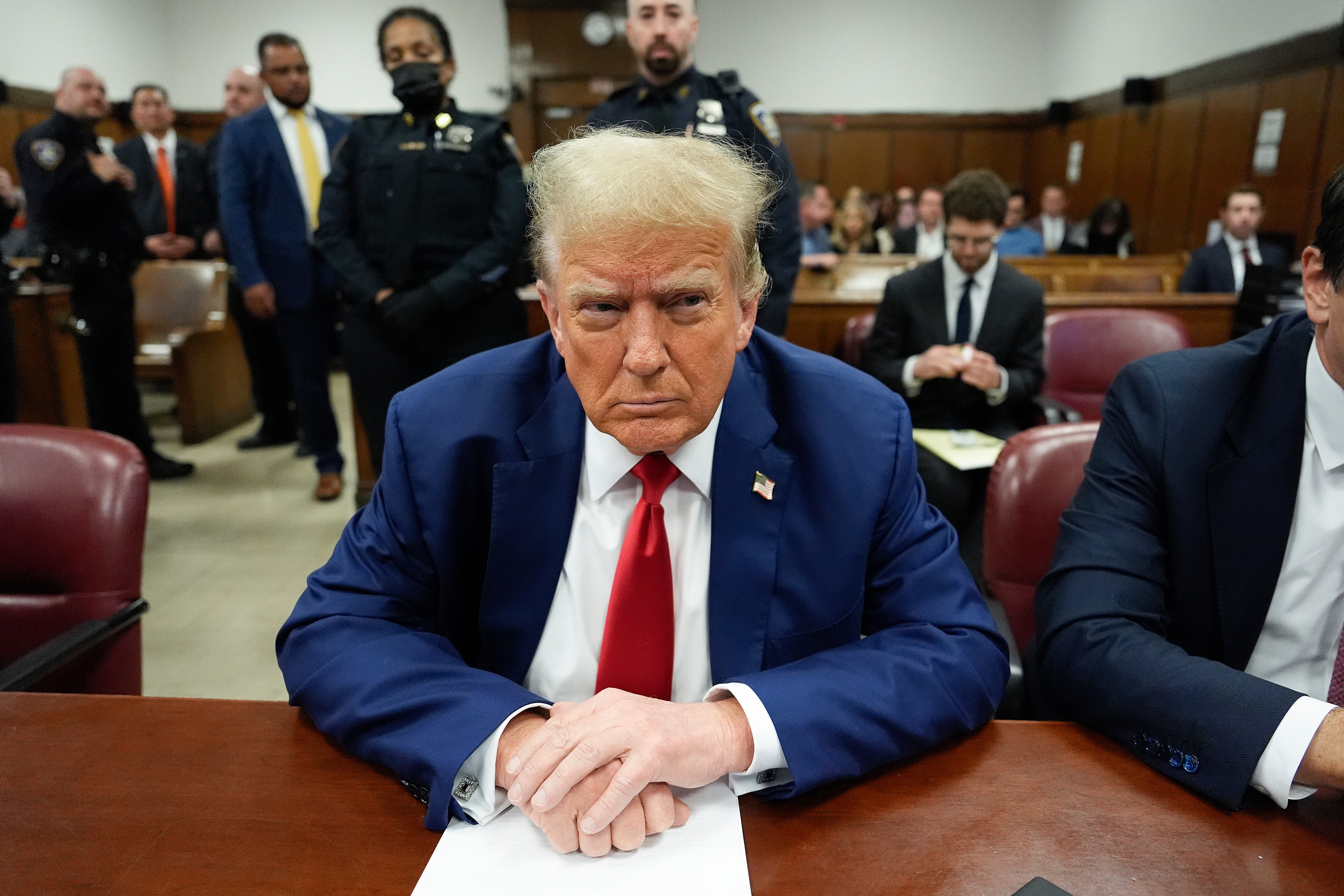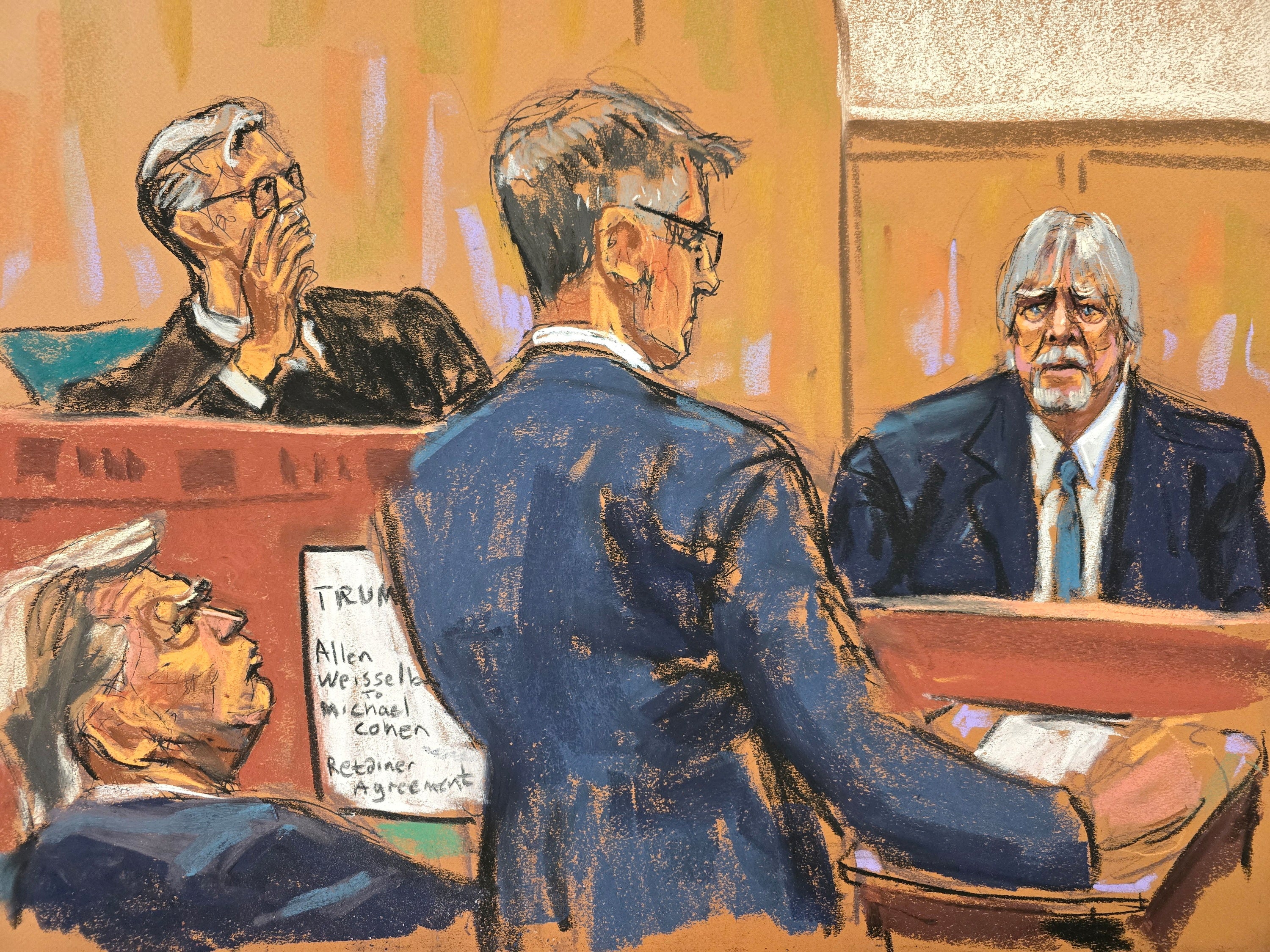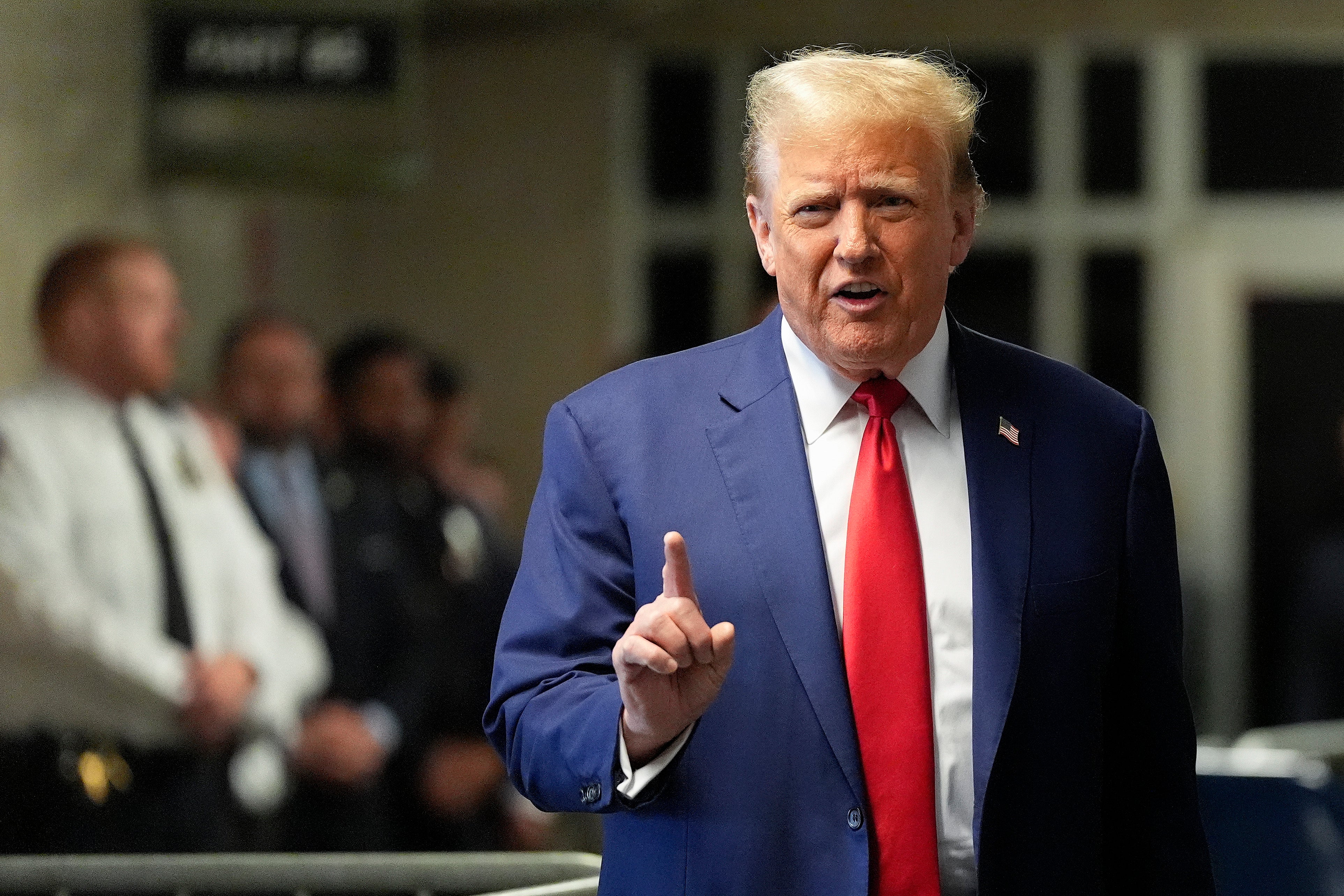Trump hush money trial: Key takeaways from start of third week of testimony
After dramatic threat from judge on gag order breaches, testimony turns to payments at heart of case
Your support helps us to tell the story
From reproductive rights to climate change to Big Tech, The Independent is on the ground when the story is developing. Whether it's investigating the financials of Elon Musk's pro-Trump PAC or producing our latest documentary, 'The A Word', which shines a light on the American women fighting for reproductive rights, we know how important it is to parse out the facts from the messaging.
At such a critical moment in US history, we need reporters on the ground. Your donation allows us to keep sending journalists to speak to both sides of the story.
The Independent is trusted by Americans across the entire political spectrum. And unlike many other quality news outlets, we choose not to lock Americans out of our reporting and analysis with paywalls. We believe quality journalism should be available to everyone, paid for by those who can afford it.
Your support makes all the difference.After Friday’s emotional testimony of Hope Hicks, the former aide to Donald Trump, the fourth week of the historic criminal hush money trial of the former president got underway on Monday (6 May) with a dramatic warning from the judge.
Justice Juan Merchan ruled on the next set of gag order violations having already fined Mr Trump $9,000 for previous breaches of the rules he set out for Mr Trump and his legal team.
The former president is now under the threat of jail if he continues to post social media comments on witnesses and jurors.
That aside, while there was much anticipation about who might take the stand next — as court watchers eagerly await testimony from Michael Cohen, Stormy Daniels, or Karen McDougal — the case turned toward the underlying transactions and bookkeeping procedures that form the basis of the criminal charges with testimony from Trump Organization administrators.
Here’s what we learned today in court:
Trump could go to jail if he keeps violating the gag order
Financial penalties may not be enough to keep the former president from violating a trial gag order intended to protect jurors, witnesses, court staff and their families, according to Judge Merchan.
Prosecutors have accused Mr Trump of violating the gag order at least 14 times, and the judge has agreed with them in 10 of those instances, issuing a total of $10,000 in fines.

In a written order on Monday, the judge noted that because Mr Trump made the latest gag-violating comments before the last decision on 30 April, he will only face a monetary fine.
But it could be his last.
“However, because this is now the [10th] time that this Court has found Defendant in criminal contempt, spanning three separate motions, it is apparent that monetary fines have not, and will not, suffice to deter Defendant from violating this Court’s lawful orders,” the judge wrote.
“Future violations” of the court’s lawful orders could be “punishable by incarceration,” he wrote.
“The magnitude of such a decision is not lost on me,” the judge told Mr Trump from the bench on Monday.
“But at the end of the day I have a job to do, and part of that job is to protect the dignity of the justice system,” he said. “Your continued violations … threaten to interfere with the administration of justice, and constitute a direct attack on the rule of law.”
As he left court shortly after 4pm, Mr Trump told reporters when asked about the prospect of jail time: “I’ll do that sacrifice any day.”
Trump’s comments about the jury ‘raised the spectre of fear for the safety of the jurors and of their loved ones’
In an April 22 interview with Real America’s Voice, Mr Trump claimed that the judge is “rushing the trial like crazy and “nobody’s ever seen a thing go like this.”
“That jury was picked so fast – 95 per cent Democrats. The area’s mostly all Democrat. You think of it as a — just a purely Democrat area. It’s a very unfair situation that I can tell you.”
Mr Trump made those remarks even after the judge admonished him for “audibly” commenting and “gesticulating” toward jurors on the trial’s second day.
His remarks to Real America’s Voice “not only called into question the integrity and therefore the legitimacy of these proceedings, but again raised the specter of fear for the safety of the jurors and of their loved ones,” the judge wrote in his decision on gag order violations on Monday.
Last week, when questioned about Mr Trump’s statements about the jury, defence attorney Todd Blanche argued that Mr Trump believes that the trial is “political persecution” and a “political trial,”
The judge cut him off.
“Did he violate the gag order? That’s what I want to know,” Judge Merchan said last Thursday. “He spoke about the jury, right? And he said the jury was 95 per cent Democrats and the jury had been rushed through, and the implication that this was not a fair jury?”
On Monday, he stressed the court’s “fundamental responsibility to protect the decency of the criminal process and to control disruptive influences in the courtroom,” he wrote.

A trial about ‘falsified business records’ finally gets into the thick of the ‘falsified business records’
Two key Trump Organization employees – including a former executive who was a co-defendant in Mr Trump’s civil fraud trial, and a longtime accounts payable supervisor who is still working for the company after two decades – gave jurors a detailed, if tedious, look into the allegedly “falsified” business records that are at the heard of the case.
The trial has heard plenty of salacious details about the workings of the tabloid business, but inevitably, prosecutors would be scrutinising the documents that are central to the allegations against the former president.
Prosecutors allege that Mr Trump’s reimbursements to Cohen for his $130,000 payment to Stormy Daniels in 2016 were disguised as legal expenses across 34 business records the following year – 11 invoices, 11 cheques, and 12 ledger entries for every month of 2017.
Testimony from Trump comptroller Jeffrey McConney and longtime employee Deb Tarasoff walked the court through Cohen’s invoices, how they were forwarded to then-CFO Allen Weisselberg, and how they were paperclipped together with checks and sent to Mr Trump, who signed them in black Sharpie. The bulk of the checks came from Mr Trump’s personal checking account.
Jurors were shown emails for each invoice, their entries in the company’s accounting system, and pay stubs and paychecks, among other documents, that showed them listed as “legal expense” or for a legal “retainer.”

Prosecutors say they need another two weeks to lay out their case
After Ms Tarasoff’s testimony concluded on Monday, Judge Merchan dismissed the jury slightly early before asking prosecutors how much more time they would take to lay out the case against Mr Trump.
Assistant District Attorney Joshua Steinglass said they would likely need another two weeks from Tuesday to question all of the necessary witnesses in the case.
That may sound like a long time but with three days of trial left this week, and with the court only being in session for three days of the following week, it is at most six or seven days of testimony. Much of that is expected to be taken up by the appearance of Michael Cohen on the witness stand — an eagerly anticipated moment in the case.
Despite much media speculation about when Mr Trump’s former lawyer and “fixer” would testify, Mr Trump claimed as he left court on Monday that he thought the prosecution would wrap up their case today implying that they are moving too slowly.
Just a week prior he complained that the case was moving too quickly and that Judge Merchan was rushing it.
The trial continues.
